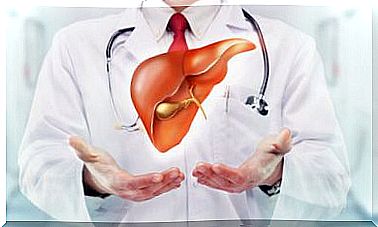What Are The Causes Of Prematurity?
Often times, the causes of prematurity are not known. However, there are certain risk factors associated with an inappropriate lifestyle.

Prematurity is defined as giving birth to a baby early. Specifically, before 37 weeks of gestation. A full pregnancy corresponds to 40 weeks of gestation. Therefore, when a situation of prematurity occurs, there is a certain risk.
It supposes more immaturity of all the organs and systems. It also increases the incidence of pathologies that complicate development. In this article we explain the types of prematurity and their causes.
Types of prematurity
When a baby is born, it can be premature (less than 37 weeks gestation), full-term (37 to 42 weeks gestation), or post-term (born after 42 weeks gestation). However, within prematurity, we find:
- Extreme premature : is one that is born before 28 weeks of gestation.
- Very premature newborn. Born between 29 and 32 weeks of gestation.
- Moderate premature: between 32 and 35 weeks of gestation.
- Late preterm. Born between 35 and 37 weeks of gestation.
Most are born only a few weeks early and do not experience any problems related to their prematurity. However , at fewer weeks of gestation, there is a greater risk of serious and even life-threatening complications. Extreme prematurity can cause death in newborns.
Also, premature babies are at higher risk for long-term problems. For example, related to developmental delay and learning disorders. However, most children who are born prematurely grow up without long-term difficulties.
Causes of prematurity

The causes of prematurity are often unknown. However, some risk factors have been identified such as:
- Being a teenager or a woman over 40 years old.
- Belonging to a low socioeconomic level. This causes that prenatal care is not adequate.
- Being pregnant with twins, triplets, or more.
- A bad diet. Very thin women are at higher risk of prematurity. Possibly, it occurs due to a decrease in uterine flow due to poor nutrition. Obesity is also considered a risk factor. Fat tissue produces inflammatory proteins that trigger spontaneous labor.
- Having infections during pregnancy. Among them, urinary infections and STDs stand out.
- Having already suffered a case of prematurity. It is the most important risk factor. The number of premature births and the gestational age in which these premature babies were born mark the risk in the new pregnancy.
- Having heart disease, kidney disease, high blood pressure or diabetes.
- Having cervical insufficiency. It consists of the cervix beginning to dilate early.
In addition, other factors that increase the risk of prematurity are:
- Consumption of toxic substances: such as tobacco, cocaine or amphetamines.
- Uterine factors. Uterine surgery, malformations or fibroids influence prematurity.
- Complications of the current pregnancy: bleeding in the 2nd and 3rd trimesters, presenting alterations in the volume of the amniotic fluid, premature rupture of membranes, and so on.
Risk symptoms
There are a number of symptoms that should alert you if you are pregnant. Before them, or before any other problem, you should go to your doctor. First of all, the fact of bleeding during the second or third trimester stands out. It can cause membranes to rupture prematurely. Therefore, it can cause prematurity.
Second, if you have painful contractions earlier than expected. They can be an alarm for premature labor. In the same way, if you lose liquid and do not know what it is. It could be amniotic fluid. It is also a symptom of premature rupture of membranes.
Tips to avoid being a premature mother

Although, as we have mentioned, the causes are not known, there are a series of recommendations to avoid prematurity. First of all, if you have already had a premature baby, you should wait 12 months to get pregnant again.
It is advisable to avoid tobacco and any toxin during pregnancy. Similarly, you must maintain proper nutrition. Ideally, correct malnutrition and anemia before pregnancy. It is also recommended to follow a diet low in fat and rich in omega-3 acids.
When labor begins long before its time, doctors administer drugs to the pregnant woman. Its purpose is to slow or stop contractions. It also seeks to accelerate the lung development of the baby to avoid complications.
In conclusion
In recent years, prematurity rates have increased. It is due, among other things, to the increase in the age of the mother, as well as cases of hypertension and diabetes. Also because the use of fertility treatments has increased. These, in turn, lead to more multiple pregnancies.
Therefore, it is necessary to detect symptoms early and see your doctor if you have any questions. In the same way, it is necessary to continue advancing scientifically to raise the hopes of premature babies.









